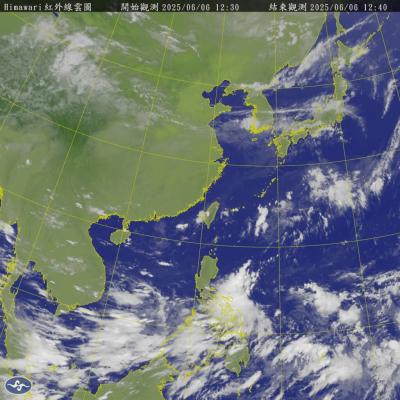Facing an especially cold winter this year, many people are attempting to stay warm by taking long, hot showers or baths, a practice that could increase the risks of cancer if done in an enclosed space, doctors said yesterday.
While many people enjoy taking a hot bath or shower, few are aware of the health risks associated with the activity, they said.
Chiang Shou-shan (江守山), a nephrologist at Shin-Kong Wu Ho-Su Memorial Hospital, said taking long, hot showers or baths for more than 20 minutes in a confined space with no circulation of fresh air could have a negative impact on a person’s health, because small amounts of chlorine and trihalomethanes (THM) found in tap and drinking water become volatile when the water is heated.
The chemicals can enter the body through the respiratory -system as a person breathes in the steam, Chiang said.
The longer the hot shower, the more THMs a person inhales, Chiang said.
Increasing shower time from five minutes to 10 minutes, for example, could cause a person to breathe in four to five times more THMs, he said.
THM is a byproduct of the small amount of chlorine added to the water supply by municipal authorities as a disinfectant. However, overexposure to THMs can increase the risks of developing various forms of cancer, including colon cancer, pancreatic cancer and bladder cancer.
The chemicals are also harmful to the liver and kidneys, and could increase the risks of miscarriage in women, he said.
Lin Ja-liang (林杰樑), a specialist in clinical toxicology at Chang Gung Memorial Hospital in New Taipei City’s (新北市) Linkou District (林口), said that by limiting hot showers to less than 10 minutes and reducing the temperature of the water, a person could drastically decrease the amount of THMs absorbed by the body.
Turning on the fan in the bathroom to allow for air circulation was also a good way to avoid breathing in too many toxins from a steamy shower, he said.

STAY AWAY: An official said people should avoid disturbing snakes, as most do not actively attack humans, but would react defensively if threatened Taitung County authorities yesterday urged the public to stay vigilant and avoid disturbing snakes in the wild, following five reported snakebite cases in the county so far this year. Taitung County Fire Department secretary Lin Chien-cheng (林建誠) said two of the cases were in Donghe Township (東河) and involved the Taiwan habus, one person was bit by a Chinese pit viper near the South Link Railway and the remaining two were caused by unidentified snakes. He advised residents near fields to be cautious of snakes hiding in shady indoor areas, especially when entering or leaving their homes at night. In case of a

A tropical disturbance off the southeastern coast of the Philippines might become the first typhoon of the western Pacific typhoon season, the Central Weather Administration (CWA) said. The system lacks a visible center and how it would develop is only likely to become clear on Sunday or Monday, the CWA said, adding that it was not yet possible to forecast the potential typhoon's effect on Taiwan. The American Meteorological Society defines a tropical disturbance as a system made up of showers and thunderstorms that lasts for at least 24 hours and does not have closed wind circulation.

ENERGY RESILIENCE: Although Alaska is open for investments, Taiwan is sourcing its gas from the Middle East, and the sea routes carry risks, Ho Cheng-hui said US government officials’ high-profile reception of a Taiwanese representative at the Alaska Sustainable Energy Conference indicated the emergence of an Indo-Pacific energy resilience alliance, an academic said. Presidential Office Secretary-General Pan Men-an (潘孟安) attended the conference in Alaska on Thursday last week at the invitation of the US government. Pan visited oil and gas facilities with senior US officials, including US Secretary of the Interior Doug Burgum, US Secretary of Energy Chris Wright, Alaska Governor Mike Dunleavy and US Senator Daniel Sullivan. Pan attending the conference on behalf of President William Lai (賴清德) shows a significant elevation in diplomatic representation,

Credit departments of farmers’ and fishers’ associations blocked a total of more than NT$180 million (US$6.01 million) from being lost to scams last year, National Police Agency (NPA) data showed. The Agricultural Finance Agency (AFA) said last week that staff of farmers’ and fishers’ associations’ credit departments are required to implement fraud prevention measures when they serve clients at the counter. They would ask clients about personal financial management activities whenever they suspect there might be a fraud situation, and would immediately report the incident to local authorities, which would send police officers to the site to help, it said. NPA data showed